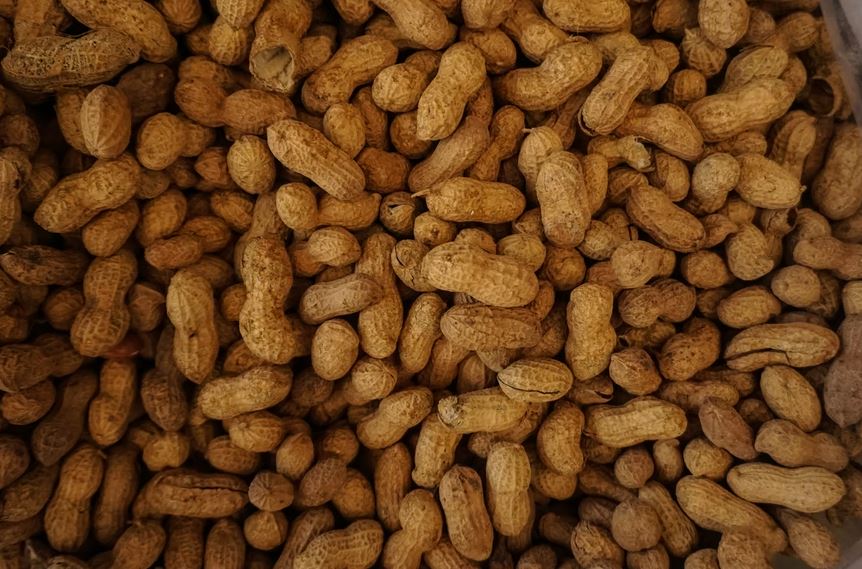Allergies can be painful, irritating, and serious. There are several different kinds of allergies that affect different parts of the body. If not dealt with, some allergies can turn into serious health concerns. Even though most of us like to eat dried fruits but some people are not that fortunate.
Peanut allergy is becoming one of the most common allergies in the world and scientists are desperately trying to come up with a cure. So, if you are someone who worries about going through the same nightmare of having consumed a peanut, don’t panic, we have got some important tips to help you out. Let’s discuss.
Who has peanut allergies?
source: emilee rader from Lansing, MI, USA, CC BY-SA 2.0, via Wikimedia Commons
Peanuts tend to be a common cause of serious allergic reactions. If you were to consume even a tiny piece, it could trigger a major reaction. For some people, the allergy is so severe that it can get triggered by simply touching peanuts.
Compared to adults, children are more likely to have peanut allergies, may it be from unrefined peanut oil or peanuts in their actual form. Fortunately, some are able to completely get rid of peanut allergy, while others have to avoid them their entire life.
On the upside, people with peanut allergies can consume foods prepared with peanut oils only if they are refined.
Scientists are of the view that if you have been diagnosed with another allergic reaction, you have a higher risk of developing food allergies. Furthermore, if the allergy pattern is passed on from the family, you are at a higher risk for developing peanut allergy as well.
Early Signs of Peanut Allergy
source:James Heilman, MD, CC BY-SA 3.0, via Wikimedia Commons
In most cases, peanut reactions become obvious as soon as contact is made with the peanuts. However, it is possible that some signs are more subtle such as itchy skin, nausea, runny or congested nose, etc.
With that said, people especially with sensitive skin should be a lot more careful around peanuts as well as the foods that contain peanuts.
Keep in mind that these are the early symptoms that can easily turn serious if left ignored. If you notice that your skin has turned irritating all of a sudden, you need to stop eating immediately and find out the cause. If it isn’t the peanuts, you should look for any other food source.
On the other hand, if you were to ignore the early signs, they will soon turn into something more noticeable and unpleasant. For instance, you can start wheezing, suffer from swollen lips or tongue, swollen face or limbs, stomach cramps, etc.
Such conditions can be excruciating and therefore, it is important that you check-up with a doctor that can help you with the allergic reaction.
Cure for Peanut Allergy
If you notice that the allergic reaction is affecting either two or more body systems or is serious in nature, you should immediately consult a doctor as these reactions can turn life-threatening within seconds. To treat a severe allergic reaction, a doctor is most likely to inject epinephrine.
At the same time, if you are diagnosed with a peanut allergy, the doctor will also ask you to carry some epinephrine auto-injectors. These injections are meant for the user to inject themselves incase they are out of reach of a doctor.
However, after injecting yourself, you are still going to need medical help. If you do not have epinephrine, you should call an ambulance service before the situation turns deadly.
Peanut Allergy Cure For a Mild Reaction
If you observe that the peanut-allergic reaction is only affecting one body system, then you can opt for over-the-counter antihistamines, which will be sufficient for treatment. Keep in mind that these drugs will only help relieve mild symptoms but won’t be effective against severe reactions.
In some cases, mild symptoms will occur before the serious symptoms. Therefore, you need to make sure that you pay close attention to your body and prepare medical backup just incase things turn for the worse.
Moreover, if you are not allergic to peanuts and suspect that something is causing an allergic reaction, you should consult a doctor. This will help you determine what is triggering a reaction. As a result, you will need to avoid touching or consuming that particular food item.
Tips to Protect Yourself
If you are diagnosed with peanut allergy, the best way to avoid any reaction is to stay away from all foods that include peanuts. If you are eating out, you should thoroughly check the dish for peanuts and do not hesitate to ask the manager. Plus, let the management know that you are allergic so that they do not end up recommending the wrong food items.
Peanuts are mostly found in granola bars, cakes, pastries, Chinese, Thai and Mexican foods, etc. When purchasing food, ask the restaurant and other food providers about peanuts. Additionally, ask your friends and family members the same thing when they prepare food.
To be on the safe side, always carry epinephrine auto-injection to help incase of a serious reaction.
Peanut Allergies and Delayed Anaphylaxis
Someone who suffers from peanut allergy will have their immune systems launch an attack as soon as it senses the proteins in peanuts. As a result, the body will release chemicals that will trigger symptoms like nausea, itchy hives, or facial swelling.
Some people are so sensitive to peanuts that they will develop a life-threatening reaction called anaphylaxis. This reaction occurs as soon as the allergic individual eats peanuts. It is rare that the symptoms will show up hours after exposure.
Furthermore, it might also be the case where you are treated for the reaction and it occurs again after a day or two without being exposed to peanuts. Such a reaction that occurs long after having being exposed to an allergic food item is called delayed or late anaphylaxis.
Final Word
As peanut allergies become increasingly popular amongst children, several drugs are being tested to serve as a cure. Even though the FDA has approved several treatment options but only time will tell if they are effective enough. However, at the moment, the best way to avoid a peanut-allergic reaction is to stay away from food items that contain peanuts and carry auto injections to deal with serious reactions.

